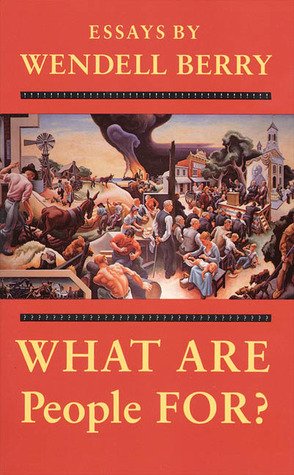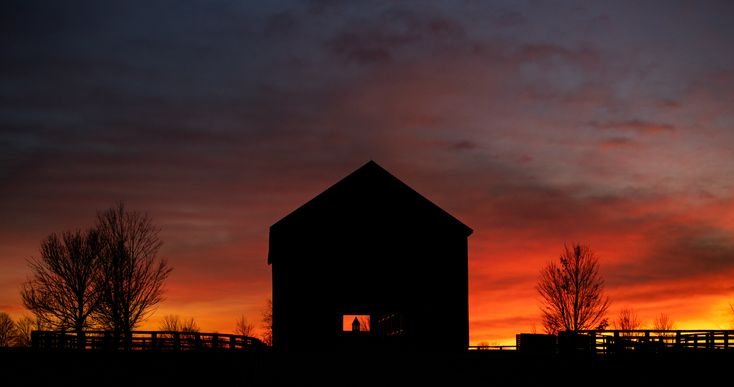WHAT ARE PEOPLE FOR?
NORTHERN KENTUCKY, DECEMBER 1988 — The barn floor needed a new layer of dirt. On a cold, sunny day, a balding man and his granddaughter got to work. They hitched horses to a wagon and hauled soil from a nearby field. Spreading it throughout the barn, they tamped it down, raked it smooth. The sun was setting when they finished and the grandfather let the little girl drive the horses. . .
You hear a lot about work these days but even more about not working. Unemployment is low and signs everywhere proclaim “We’re hiring!” But while employees talk of “quiet quitting,” others talk of a wondrous new worker.
Unveiled in 2022, Chat GPT has captured the imagination of millions. There have been many “chatbots,” from Eliza to Alexa to Siri, but Chat GPT is different. Beyond finding “a Starbuck’s near me,” Chat GPT writes poems, songs, and essays more eloquent than the average student. And it is just getting started.
“Within six months or so,” one AI mogul said, “we're going to see a huge step-up in the conversational capabilities of chatbots and voice assistants." And within 15 years, Fortune predicted, chatbots, robots, and other AI bots are expected to replace 40 percent of all jobs.
Some marvel, others worry. But Wendell Berry, the Kentucky grandad, asks a bigger question: ”The great question that hovers over this issue, one that we have dealt with mainly by indifference, is ‘what are people for?’“
Wendell Berry has been asking tough questions for more than half a century. Raised on his family’s farm in Kentucky, Berry seemed bound for a road less taken. A gifted writer, he won a scholarship to Stanford where he studied with novelist Wallace Stegner. He was in good company, his classmates including Ken Kesey, Larry McMurtry, and Robert Stone.
But while those novelists went on to fame, Wendell Berry went back to the land. After publishing two novels and assorted poems, he left a teaching job at NYU. In 1965, on July 4, the same date Thoreau moved to Walden Pond, Berry moved his family to a 12-acre farm overlooking the Kentucky River. He has been there ever since.
While raising corn and other crops, Berry has enriched American thought with a fertile flow of ideas filling 25 books of poetry, eight novels, and 16 essay collections. A modern day Emerson, Berry is a champion of nature, of self-reliance, of love, friendship, and character.
“Although the days of the prophets seem past to many of us,” The New York Review of Books wrote, “Berry may be the closest to one we have.”
Prophetic and concerned, Berry long ago saw America heading down dead ends that are now obvious. Food, he wrote back in the 1980s, should be grown locally. Culture, likewise. And in placing competition above compassion, he wrote, “the unsettling of America” was creating a nation of winners and losers.
“The defenders of the ideal of competition have never known what to do with or for the losers. The losers simply accumulate in human dumps, like stores of industrial waste.”
What began down on the farm with the demise of the small farmer continues in the workplace. In his 1985 essay, Berry asked: What are people for?
“Is their greatest dignity in unemployment? Is the obsolescence of human beings now our social goal? One would conclude so from our attitude toward work, especially the long-term preservation of the land, and from our rush toward mechanization, automation, and computerization.”
Having left academia’s ivory tower, Berry has never been content with complaint. He has demonstrated against nuclear power, coal and strip mining, the death penalty, and war. To those who wonder whether protest matters in the march of “progress,” he offers another answer.
“Protest that endures, I think, is moved by a hope far more modest than that of public success: namely, the hope of preserving qualities in one's own heart and spirit that would be destroyed by acquiescence.”
In 2011, Berry focused his thought into the Berry Center in New Castle, KY. As he turns 91, the center continues his work, “the work of changing our ruinous industrial agriculture system into a system and culture that uses nature as the standard, accepts no permanent damage to the ecosphere, and takes into consideration human health in local communities.”
Chat GPT is here to stay. Chatter on, if you must. AI will only grow and take away more jobs. But to preserve “heart and spirit,” we should all ask the question Wendell Berry framed more than thirty years ago — “what are people for?”
The sun was setting over the Kentucky farm. The little girl was driving the horses, for the first time. Berry worried that Katie might be tired, resentful. Then she turned and looked at her grandfather. “Oh Wendell,” she said after all that hard work. “Isn’t it fun?”















